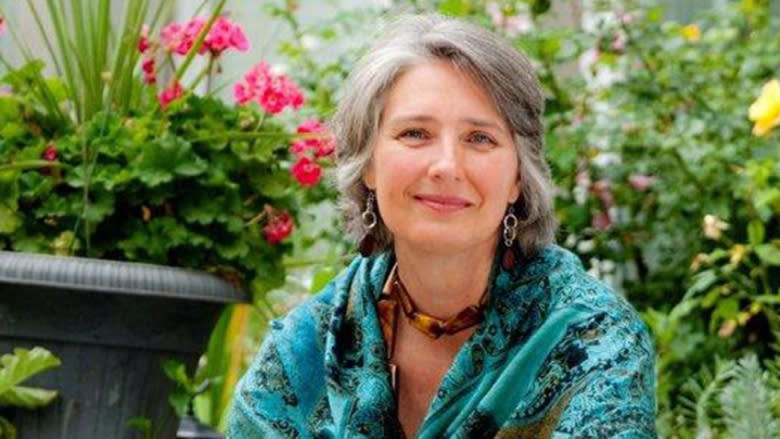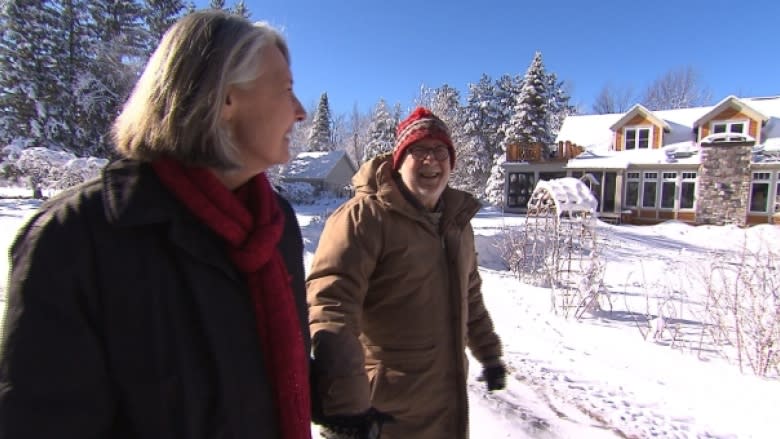Louise Penny writes new Inspector Gamache book while caring for husband with dementia
Canadian mystery author Louise Penny has just released The Nature of the Beast, the 11th book in her Chief Inspector Gamache series.
Penny is one of Canada's best-selling mystery authors, but life for her and her family changed dramatically a few years ago when her husband, Michael Whitehead, was diagnosed with dementia.
"We took a few months to absorb it, to talk to family, get our breath and our feet underneath us, but Michael was very clear that he wanted to step forward," she said.
On The Coast's Stephen Quinn spoke with Penny about her latest book and her life with Whitehead.
What can your legions of fans expect from Chief Inspector Gamache this time around?
Like most of the stories, it's a crime novel, but it's not really about murder. The theme behind this is the power of storytelling. The stories we tell through books and movies and opera and dance, and how ancient and powerful and primal they are. But also the more intimate stories and how the line blurs between fact and fiction.
And then there are the stories we tell ourselves that allow us to justify some of our actions.
It's about this little boy with an incredibly active imagination. He often cries wolf, saying there aliens invading or dinosaurs or a house fire. He's really annoyed the townspeople, and so they don't believe him anymore. And then he disappears, and it becomes clear that at least one of his stories was probably true.
I often have a hard time dealing with children in peril in literature and cinema. What do you think of using that as a device?
I think if what happened to this boy was gratuitous or trivialized, then I'd have a lot to answer for. It wasn't an easy decision.
It was the first time I'd put a child in peril and there were scenes that certainly were very difficult to write. It's something I felt had to be done and I hope I treated it with respect and the parents with respect.
A lot of people probably know about your previous career as a journalist and CBC broadcaster. When you're writing about the duality of the public and private person, you must be drawing on your own experience.
Yes. They say that the happiest people are those with the smallest gap between the perception and the reality. Some people's gaps are enormous and in that gap falls fear and anxiety and anger.
At one stage there was a huge gap between the reality and what I put forward as my own life. But now it's much smaller. But still, being in the public eye now, which I really wasn't hugely before, with Facebook and social media and the public appearances, I've made some mistakes in finding that balance between exposing what's personal and what's private.
That line is imperfectly drawn and something I struggle with.
Still, you've been very candid about what your husband's going through.
That was obviously a very difficult decision, but a deliberate one. He was the former head of haematology at Montreal Children's. He was brilliant, one of the lead investigators of childhood cancer in North America.
And he has dementia. At this stage, he can't count two and two. We sing Jingle Bells to each other every morning. But it was important for him to say, 'This happens to everyone. I am not ashamed. And my family is not ashamed. And we're going to be open about it.'
You write from home. Tell us about taking care of Michael and being able to bang out another book.
I feel very calm about my writing life. I think having perspective helps. Three years ago all that really mattered were the books and my career. They're still important but they're secondary.
I changed my routine. I get up at five now. That gives me four or five hours to myself, to write or think about the books, and then it's time to get Michael up. And once Michael's up the day's done, the laptop goes away and so I don't feel like I'm torn.
This interview has been condensed and edited. To hear the full interview, click on the audio labelled: Author Louise Penny talks about new book, husband's dementia



